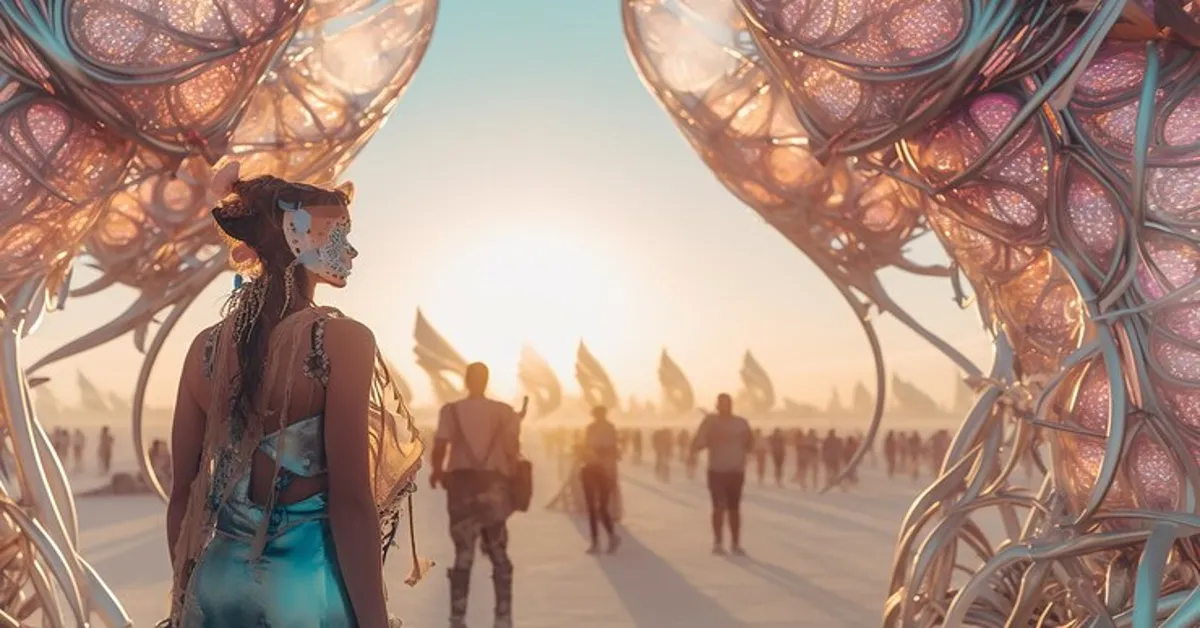In the dynamic realm of digital content and social narratives, “TabooFantazy” is emerging as a keyword that embodies curiosity, exploration, and cultural reflection. Within just a few clicks, users seek to understand what it means, why it’s gaining attention, and how it reflects deeper societal trends. This article deciphers TabooFantazy — not just as a term, but as a mirror to modern desires, storytelling boundaries, and the way humans explore identity, emotion, and imagination.
Understanding TabooFantazy: More Than a Phrase
TabooFantazy, a stylized twist on the words “taboo” and “fantasy,” isn’t a new idea — but its cultural application has evolved significantly. At its core, it refers to the imaginative exploration of ideas, desires, or themes that are socially or culturally prohibited, restricted, or uncomfortable. These themes could span anything from speculative fiction and art to adult literature and immersive digital experiences.
Yet, Taboo Fantazy is not just about pushing boundaries for shock value. It represents a form of psychological and emotional exploration — one that offers a unique lens into human curiosity. Unlike conventional fantasies, taboo fantasies often navigate the forbidden, the hidden, or the socially unspeakable.
This has made Taboo Fantazy a growing niche in literature, cinema, gaming, and virtual reality content. It’s not necessarily explicit; rather, it’s reflective. It challenges readers and audiences to confront what society chooses to hide.
The Cultural Psychology Behind Taboo Fantasies
Every society has unspoken rules — boundaries of acceptable behavior, conversation, and even imagination. But psychological studies reveal that when something is forbidden, it often becomes more intriguing. Taboo fantasies, therefore, emerge not just from rebellion, but from a desire to understand the self in contexts we don’t publicly talk about.
Taboo Fantazy thrives on the following psychological elements:
- Transgression: The thrill of stepping beyond the line.
- Reflection: A way to engage with uncomfortable or repressed thoughts.
- Imagination: The power to envision realities outside social norms.
- Empowerment: The act of mentally confronting the prohibited to gain personal understanding.
This doesn’t necessarily equate to condoning or acting upon such fantasies. Rather, it reflects a safe mental space where individuals explore identity, control, and emotion in metaphorical or symbolic ways.
Modern Media and the Rise of TabooFantazy
We live in an age of immersive storytelling — from podcasts and web series to interactive games and AI-generated content. These platforms have allowed Taboo Fantazy to evolve from whispered conversations to curated digital experiences.
Streaming platforms are increasingly exploring nuanced storylines that once would’ve been rejected by mainstream producers. Shows focusing on power dynamics, moral ambiguity, or psychological complexity are no longer rare.
Literature and fan fiction communities have been particularly instrumental. Platforms like Wattpad and Archive of Our Own have become incubators for bold, boundary-pushing fiction that redefines the idea of taboo — whether that involves alternate realities, complex relationship dynamics, or dark themes.
Gaming and VR content have taken it a step further. Role-playing environments allow users to embody characters and make choices that play with ethical or emotional restrictions — not for real-world action, but for fictional exploration.
Cultural Examples of TabooFantazy in Action
To grasp the range and impact of Taboo Fantazy, it helps to look at some common archetypes:
| Type of TabooFantazy | Description | Cultural Representation |
|---|---|---|
| Forbidden Relationships | Exploring romantic/ethical boundaries | Literature, fan fiction, indie cinema |
| Power Reversal Fantasies | Subverting roles in authority and control | Psychological thrillers, VR games |
| Temporal Fantasies | Situating taboo in past/future times | Historical fiction, sci-fi novels |
| Surreal Fantasies | Blending taboo with dreamlike or symbolic realms | Art house films, avant-garde poetry |
| Social Commentary Fantasies | Using taboo to highlight injustice or irony | Dystopian series, satire writing |
Each of these categories demonstrates how TabooFantazy isn’t just a genre, but a method of confronting norms.
TabooFantazy and Ethics: Where Is the Line?
One of the most important aspects of Taboo Fantazy is ethical boundaries. In an age where content can reach millions instantly, creators and platforms must ask: What are we exploring? Why are we exploring it? And how can we ensure it doesn’t cause harm?
Three major ethical concerns around Taboo Fantazy include:
- Consent in Representation: Even in fiction, how characters or subjects are treated matters.
- Trigger Awareness: Balancing creative freedom with content warnings or psychological sensitivity.
- Misinterpretation Risk: Making sure the difference between fantasy and endorsement is clear.
Audiences are increasingly discerning. Responsible creation means crafting Taboo Fantazy content that is meaningful, symbolic, and contextually thoughtful — not gratuitous.
The Role of Technology in Shaping TabooFantazy
Technology has dramatically expanded the way TabooFantazy can be experienced:
- AI Story Generators: These offer custom narratives tailored to personal themes.
- Virtual Reality: Users can explore symbolic or alternative environments that defy normal rules.
- Augmented Storytelling: Blending real-world spaces with fictional overlays to explore moral complexity.
This technological evolution supports therapeutic storytelling, creativity, and even educational psychology. For example, some therapists use fictional taboo scenarios to help clients safely explore repressed emotions.
TabooFantazy and Identity: Who Is Exploring?
One of the most striking aspects of the TabooFantazy trend is how inclusive it has become. From marginalized communities to neurodiverse individuals, many are using taboo frameworks to navigate self-expression.
- LGBTQ+ Creators: Use fantasy to process complex social narratives.
- Neurodiverse Audiences: Find symbolic representations of inner emotional or cognitive experiences.
- Feminist Writers: Reclaim or redefine power dynamics in unconventional ways.
This reflects a democratization of storytelling, where anyone can reimagine the world through their own lens.
The Future of TabooFantazy: Artistic or Algorithmic?
As AI continues to evolve, the future of TabooFantazy could be shaped more by algorithms than authors. Will AI-generated fantasy capture human nuance? Or will it flatten the raw edge that makes taboo themes emotionally rich?
On one hand, AI could offer personalized, safe environments to explore. On the other, the risk lies in formulaic content that misses the deeper human elements — shame, curiosity, resistance, and growth.
This makes it crucial for human oversight to remain at the center of TabooFantazy’s evolution — both creatively and ethically.
Educational Use of TabooFantazy
Educators, therapists, and sociologists are also beginning to recognize the academic value of taboo-themed content:
- In classrooms: Using speculative fiction to challenge historical or cultural assumptions.
- In therapy: Narrative exercises where clients imagine crossing a taboo for insight.
- In sociology: Analyzing which taboos are fading, which are resurfacing, and why.
By treating TabooFantazy as a mirror — not a prescription — these disciplines are helping society better understand itself.
Final Thoughts: Why TabooFantazy Matters
TabooFantazy isn’t about shock or rebellion. It’s about revealing what’s hidden — within culture, within the self, and within the imagination. In a world where we crave authenticity yet often suppress discomfort, these fantasies provide a fictional playground for confronting fears, understanding desires, and expressing autonomy.
As long as creators and consumers treat the space with responsibility, TabooFantazy will remain a vital — even healing — part of our collective narrative.
ALSO READ: 5StarsStocks.com: A Deep Look Into the Emerging Stock Ratings and Investment Insight Platform
Frequently Asked Questions
1. What does TabooFantazy mean?
TabooFantazy refers to the imaginative exploration of themes or scenarios that are culturally or socially forbidden, often used in literature, art, and digital storytelling.
2. Is TabooFantazy only about adult content?
No, it includes a wide range of themes — from social critique and psychological exploration to surrealism and speculative fiction. It’s more about challenging norms than being explicit.
3. Why is TabooFantazy becoming popular?
It allows individuals to explore identity, emotion, and power structures in symbolic ways, especially in safe fictional or digital environments.
4. Is it ethical to engage with TabooFantazy content?
Yes, as long as it’s consumed or created responsibly, with awareness of consent, representation, and context. It’s a form of storytelling and exploration, not endorsement of actions.
5. Can TabooFantazy be therapeutic?
Yes. In controlled settings like therapy or education, taboo fantasies can help process trauma, explore emotions, or confront internalized social scripts.









